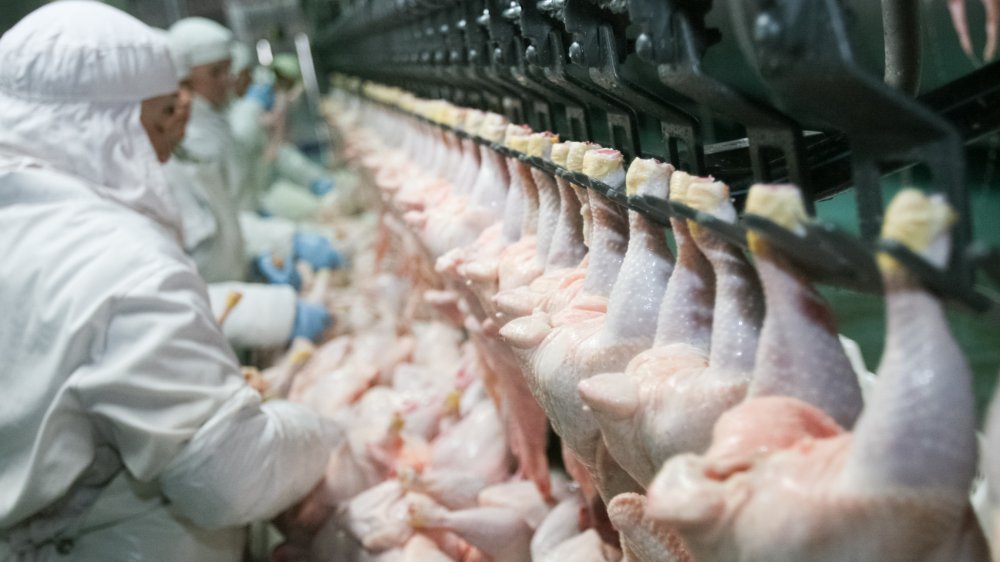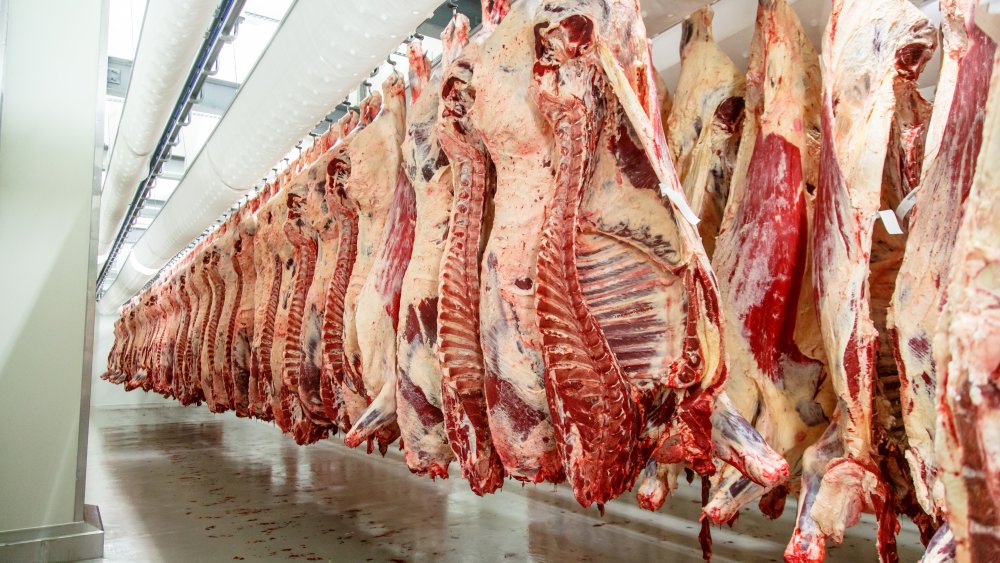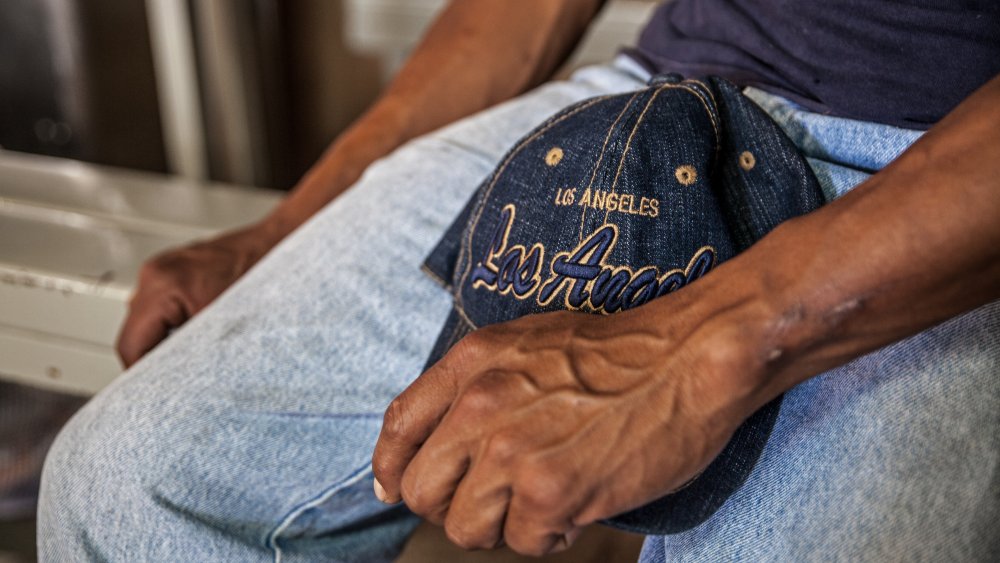The Dangerous Reality Of Being A Meat Plant Worker
In 2007, a harrowing epidemic struck a privately owned meat supplier for the Hormel Foods Corporation. As detailed by the St. Paul Pioneer Press, at least 18 workers experienced "a mysterious neurological illness." The Minnesota Post reports that symptoms included leg weakness, fatigue, and numbness. According to the Guardian, some employees suffered permanent nerve, spine, and brain damage.
Something nasty was in the air, but it was not a virus. A compressed-air hose was blowing pigs' brains out in the form of a fine mist that workers inhaled. The similarity between pig and human cells caused the workers' antibodies to attack their own bodies, as if they were bits of pig brain. Investigators from the Mayo Clinic and the CDC identified the ailment as "progressive inflammatory neuropathy." Breathable pork brains aren't the only food for horrible thoughts at a meat plant. And unfortunately, corporations tend to worsen this already hazardous situation.
The human cost of hazards
NIH says, "Meat processing has a much higher injury and illness rate than the average U.S. factory," largely stemming from contact with bacteria and/or tainted meat. According to the CDC, the chemicals used to kill microbes irritate the eyes and respiratory system. The arduous, repetitive nature of tasks causes musculoskeletal problems. Workers accidentally cut off their fingers, as CBS explains, and during a nine-month period in 2015, Tyson Foods had 34 documented amputations and hospitalizations. Employers, meanwhile, try to cut costs by cutting corners and ramping up production.
COVID-19 has made the job even more hazardous. According to US News, as of May 1, almost 5,000 U.S. meat processing workers have fallen ill, with at least 20 deaths. Yet, Reuters reports that employees work "elbow-to-elbow" together without proper protections. An Alabama-based Wayne Farms chicken processing plant charged employees 10 cents a day for masks. The Guardian interviewed workers at a Georgia Tyson plant: A woman from Central America, who'd worked there for 19 years, earned $13.33 an hour, and claimed Tyson forced hundreds of workers to take a single bathroom break, all at once, with only seven restrooms.
Undocumented tragedies
In 2016, the GAO found that immigrants accounted for 30 percent of the workforce at these plants, via CBS, but not all immigrant workers are necessarily accounted for.
A 2017 ProPublica investigation exposed the horrific conditions at the Case Farms chicken processing plant, which hired undocumented migrants, and fired them following severe injuries. The former head of OSHA described Case Farms as "an outrageously dangerous place to work." For example, a Guatemalan immigrant identified as Osiel fled to the U.S. using a false alias after a gang shot his mom and tried to abduct his sisters: Case Farms hired Osiel, tasked him with cleaning a machine that cools chickens in cold water, and told him to climb up the machine (to switch off the water valve) without a ladder. Osiel slipped, and his legs got trapped in the machine, which, according to medical reports, "literally ripped his leg off." Case Farms fired him.


